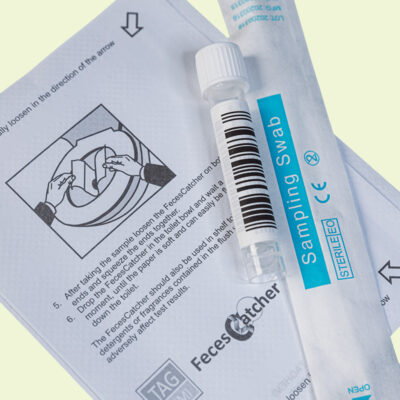The phrase “healthy gut, healthy brain” describes the connection between gut health and brain health. This term refers to the fact that there is a connection between the gut and the brain
which is called the gut-brain axis. This connection enables two-way communication between the brain and the gut, meaning that what happens in the gut can affect the
brain function, and vice versa.
Recent research has shown that the gut microbiota (microorganisms that live in the gut) play an important role in this connection. For example, a healthy gut microbiota can help maintain normal brain function, while dysbiosis (a microbiota imbalance) can lead to problems like anxiety, depression and cognitive decline.
“A healthy gut is the foundation for a healthy life. Your gut is your second brain, and a well-functioning gut is critical to maintaining mind-body balance.”
dr. Natasha Campbell-McBride
In addition, the gut and brain share the same neurotransmitter and hormone systems, meaning that substances produced in the gut can influence mood and cognitive function.
functions. There is growing scientific evidence to suggest that gut bacteria and the microbiome – the collection of microorganisms that inhabit the gut – may play a key role
in the development and maintenance of brain health.
How do bacteria affect brain-related diseases?
- Effect on inflammation: Bacteria in the gut can cause inflammation that can affect the brain. Inflammation is known to be a key factor in the development of many brain-related diseases, such as Alzheimer’s disease, Parkinson’s disease, and depression.
- Effect on neurotransmitters: Bacteria in the gut can produce neurotransmitters, chemical compounds that are transmitted between nerve cells in the brain. These neurotransmitters can affect mood, anxiety and depression.
- Effect on intestinal permeability: Bacteria in the intestines can affect intestinal permeability, i.e. on how easily digested food, toxins and bacteria can break through the intestinal barrier. If the intestinal permeability is not good, toxins and bacteria can enter the bloodstream and cause inflammation that can affect the brain.
- Effect on the immune system: Bacteria in the gut can affect the immune system, which can play a key role in the development of brain-related diseases such as multiple sclerosis and autism.
Considering these mechanisms, maintaining a healthy gut microbiome may play an important role in maintaining brain health and preventing brain-related diseases.
How to improve gut health and thus affect brain health?
- Eat fiber-rich foods: Dietary fiber “feeds” good bacteria in the gut, which helps maintain a healthy microbiome. Some fiber-rich foods include fruits, vegetables, whole grains, and legumes.
- Avoid sugar and processed foods: Sugar and processed foods can encourage the growth of bad bacteria in the gut, which can lead to an imbalance in the microbiome.
- Drink enough water: Water helps maintain healthy bowel function and stimulates digestion.
- Increase your intake of probiotics: Probiotics are good microorganisms found in foods such as yogurt, kefir, fermented vegetables and sauerkraut. These probiotics help maintain a healthy microbiome.
- Exercise regularly: Exercise can help stimulate bowel function and improve digestion.
- Reduce stress: Stress can have a negative impact on the gut microbiome, so it’s important to try to reduce stress through techniques such as meditation, yoga or deep breathing.
- Get enough sleep: Lack of sleep can affect gut function and the microbiome, so it’s important to get enough sleep.
These simple lifestyle changes can have a significant impact on your gut and brain health. If you have any health concerns, always consult your doctor before making any major changes to your diet or lifestyle, or feel free to contact us with any questions.




